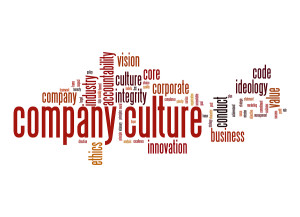
Company culture can be hard to understand if your organization hasn’t given it any though in the past. But the cold, hard truth is that company culture affects all levels of an organization, and can hurt you as much as it can help you if leaders don’t give it proper attention. At its core, company culture is the collective beliefs, values, and behaviors that affect how leaders and employees interact internally as well as how they interact with external parties such as clients and partners.
Company culture has a massive bearing on how the world perceives your business, but too often organizations fail to explicitly define a culture, hoping that it will spring forth of its own accord. There are many things to understand about company culture, and unfortunately, many would-be-successful businesses fail to acknowledge the benefits it brings to the table. So let’s take a closer look at some real life examples of businesses and the company cultures they have cultivated.
Moz
Any web marketing aficionado (or just about anyone who owns and operates a website, really) has already heard of Moz. One component of their company culture that is pivotal to their success is their stance on clear and brutal honesty. By being so transparent, they can better develop trust between their organization and their audience. In fact, the CEO regularly makes appearances in marketing and how-to videos, and he’ll post any manner of personal (albeit appropriate) information on their blog.
Evernote
One of the odder facets of Evernote’s company culture includes their officer training program. Officers in training are required to attend at least two additional meetings per week – in departments they don’t work in. While many other organizations would have seen this as a waste of time, the active participation of officers in interdepartmental meetings boosts their understanding of each component of the business, helping them become more effective leaders.
In addition, Evernote made sure to integrate communication skills as part of their culture. Though there are many talented professionals, they don’t all have excellent communication skills. By only allowing people with strong communications skills join their team, they feel they can create a more tightly-knit team of employees. As Libin stated in the interview, “…if you don’t have excellent communication skills it’s going to be very frustrating for you and for other people.”
BirchBox
BirchBox focuses developing a company culture of extreme positivity. The co-founder, Katie Beauchamp, won’t consider hiring anyone who describes a past job as “not fun.” She sees the value in her employees being personally motivated and engaged in their work, and views negativity as the kryptonite to her business. One quirky component of their company culture is a motivational and incentive tool, a gnome affectionately named Chompsky, who is awarded to one member of their team each month. Employees vote by casting “gnominations” for their peers, and the winner even gets $1,000. While you may not need a gnome or other types of mascots in your office, fostering a clearly defined organizational culture can have a large impact on the success of your business.
Seeking Assistance
It’s one thing to identify and admire brilliantly designed business cultures, but an entirely different matter to create one. For help developing your business culture, contact John M. Ruh and Associates.

Written by John Ruh
John M. Ruh and Associates are mission based business advisors who partner with growth oriented leaders to create the right P.S.T. support: the right People, the right Structure and the right Tools.